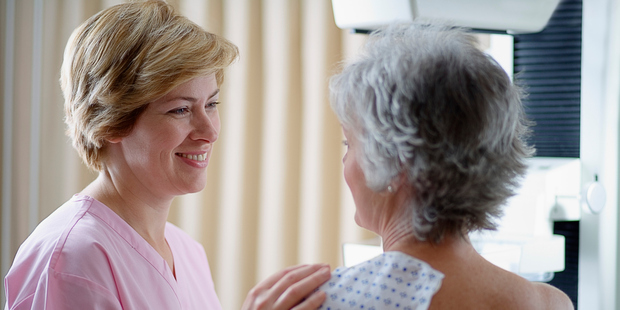New Zealand Herald: Breast Screening Cuts Cancer Deaths More Than Previously Thought


Breast cancer screening between the ages of 50 and 69 leads to a 40 per cent reduction in women dying of the disease, according to a major international review.
The study, published in the New England Journal of Medicine, had 29 experts from 16 countries analyse more than 50 trials and studies.
Overall, it found that women invited to attend mammography screening had a 23 per cent reduction in breast cancer death compared with women not invited by routine screening programmes.
The review concluded that screening of women aged 70 to 74 also results in an significant reduction in breast cancer mortality - more so than thought from previous research.
But evidence for the effectiveness of screening women in the younger age group of 40 to 49 was limited.
Overall, the researchers said screening detected breast cancers that would otherwise never have been diagnosed.
Although it saves lives, screening also comes with various negative effects such as false-positive results, over-diagnosis and radiation-induced cancer.
But experts said their review builds on previous evidence which suggests the potential benefits of breast screening outweigh the risks.
Stephen Duffy, from Queen Mary University of London, was one of the scientists involved in the research co-ordinated by the International Agency for Research in Cancer.
"This important analysis will hopefully reassure women around the world that breast screening with mammography saves lives," the professor of cancer screening said.
"The evidence proves breast screening is a vital tool in increasing early diagnosis of breast cancer and therefore reducing the number of deaths."
